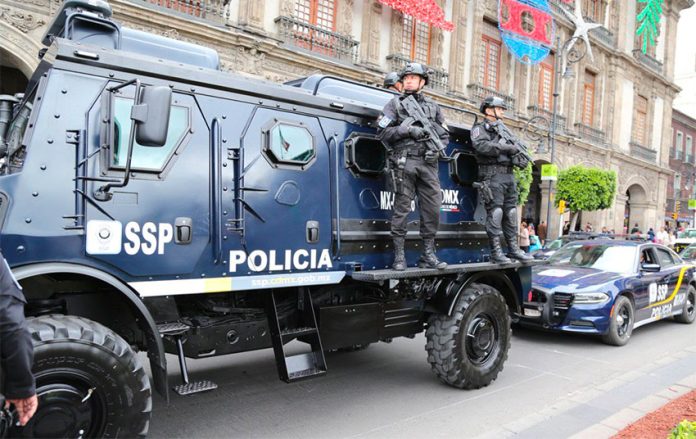Despite having long played down the presence of the powerful Jalisco New Generation Cartel (CJNG) in Mexico City, a series of recent moves is making such denials increasingly pointless.
In recent weeks, signs have emerged that the Jalisco cartel is expanding its presence in the capital, largely by allying itself with the Fuerza Anti-Unión to take on the capital’s largest criminal gang, La Unión Tepito.
On October 3, a shoot-out in the borough of Azcapotzalco left six dead and four wounded, with one of the arrested perpetrators telling police they were hired by the CJNG to attack drug dealers associated with the Unión Tepito, according to the newspaper El Universal.
An early October raid at Mexico City’s Central de Abasto wholesale market found tunnels used to move drugs and weapons. City officials said these belonged to the Fuerza Anti-Unión and that they were being supplied with weaponry by CJNG.
Officials have recently made somewhat contradictory statements about the CJNG. On September 18, Security Minister Alfonso Durazo stated that the CJNG had been making incursions into Mexico City and maintained “fragile” agreements with local gangs.
But earlier in September, Mexico City’s Secretary of Citizen Security, Omar García Harfuch, claimed that the CJNG had no significant presence in the capital and that local gangs, such as the Unión Tepito and their enemy the Fuerza Anti-Unión, had been broken up into “atomized cells.” More recently, he identified 14 criminal groups operating in the capital – without including the CJNG.
García’s comments came mere months after his attempted assassination on June 26, when CJNG gunmen shot up his car, hitting him three times and killing his bodyguards as well as a passerby.
InSight Crime analysis
Mexico City officials are sticking to a long-held narrative that the capital remains a cartel-free bastion of safety.
But this is belied by any number of reports: that the CJNG supplies microtraffickers with drugs in nine of Mexico City’s 16 boroughs, that CJNG members are directly extorting businesses in the historic center and that the new Fuerza Anti-Unión leader reportedly maintains strong ties with the CJNG.
Cementing a power base in Mexico City would be a significant step for the group, bringing it one step closer to having a presence in every part of the country.
According to Óscar Balderas, a Mexican journalist and expert on organized crime, the capital has clear attractions for the CJNG. “The country’s logistics are controlled from here … you have the historic center, which is the richest itinerant trade area in all of Latin America, the most important airport in Latin America to be used for drug trafficking and human trafficking, you have financial areas where money can be laundered,” he told InSight Crime.
Pinpointing how long the CJNG has had a presence in the capital is challenging. Suspicions of ties between the CJNG and the Fuerza Anti-Unión have existed since at least 2017, when the National Center for Planning, Analysis and Information for Combating Crime first warned about it.
And this “divide-and-conquer” approach has worked elsewhere. Its nationwide success can be partly attributed to its common tactic of forging alliances with local groups, as seen in Tamaulipas with Los Metros or in Tijuana with remnants of the Arellano Félix organization, who have rebranded themselves as the Tijuana New Generation Cartel.
But displacing the Unión Tepito will not be a simple task. To do so, the CJNG “must break the very deep ties – even familial ones – that La Unión Tepito has in the center of Mexico City … Their only alternatives would be to buy loyalties, and the CJNG has plenty of money to do so, or to force them out with violence,” explained Balderas.
But, he suggested, a violent approach would likely provoke a firm response from law enforcement and spoil one of Mexico City’s key criminal advantages: “the ability to go unnoticed while controlling some of the most profitable criminal businesses in the country.”
Reprinted from InSight Crime. Alessandro Ford is a writer with InSight Crime, a foundation dedicated to the study of organized crime.
